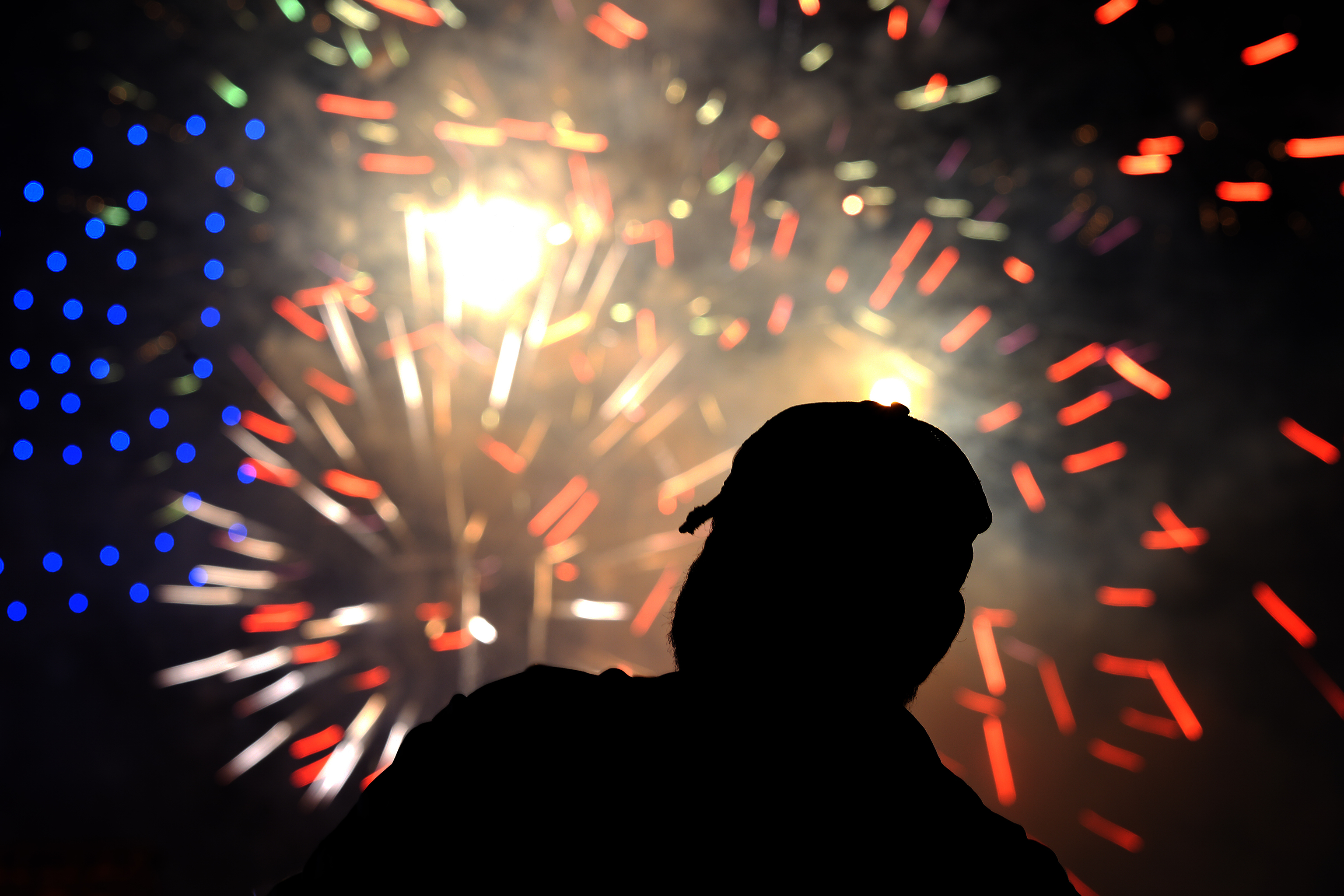The hamburgers aren't the only things sizzling this Fourth of July: Millions of people are under heat warnings as large numbers of Americans traveled to toast their nation's birth with parades, cookouts and fiery splashes of colors against the evening sky.
Travel records are projected to fall with people already jamming airports and crowding highways ahead of the Fourth of July to get to their destinations. Across the West, meanwhile, residents were dealing with stifling heat as the National Weather Service warned of a "significant and extremely dangerous" heat wave across much of the region.
Fireworks — a staple for the holiday — were expected to reach an all-time high with an untold number of backyard displays in addition to 16,000 professional shows lighting up the horizon from sea to shining sea.
"This is how we celebrate. It's the bombs bursting in air. It's the rockets' red glare. That's how people show their pride and patriotism," said Julie Heckman of the American Pyrotechnics Association.
All signs pointed to big celebrations: The Transportation Security Administration reported that a record-breaking nearly 3 million people traveled through airports in a single day last week, and that figure is expected to be broken this week. And AAA projected that 60.6 million people will travel by car during the holiday period. Part of the boost was attributed to easing inflation, though many Americans remain concerned about the economy.
On the much of the West Coast, residents were advised to take precautions to avoid overheating on the holiday.
Temperatures were expected to top 100 degrees (38 degrees Celsius) across both coastal and inland areas of California, with heat spreading into the Pacific Northwest. Some spots in the desert Southwest were expecting temperatures topping 120 degrees ( 49 degrees Celsius). Hot, muggy conditions also permeated the Deep South and Middle Atlantic.
The Northern California city of Oroville's annual fireworks were canceled as an estimated 26,000 residents remained displaced by the growing Thompson Fire, while hundreds of firefighters toiled under extreme heat to keep flames from reaching more homes.
Plenty of barbecue, desserts, cold drinks and the Stars and Stripes were on tap from Maine to Hawaii. But Americans were also celebrating in other ways unique to their communities.
Off the rocky coast in Down East, Maine, some planned to enjoy lobster boat races. Descendants of the signers of the Declaration of Independence were ringing the Liberty Bell 13 times — once for each of the original colonies — in Philadelphia. The California communities of Bolinas and Stinson Beach, north of San Francisco, were engaging in their annual tug-of-war contest in which losers end up in a lagoon.
And, of course, there's the annual hot dog eating contest on New York's Coney Island.
The July Fourth holiday generally unites Americans in their shared love of country, but the 2024 version comes against a backdrop of deep political polarization and a divisive presidential race.
In Boston, where tens of thousands were expected to enjoy the Boston Pops Fireworks Spectacular, maestro Keith Lockhart said it's inspiring to see people of different political stripes gather on Charles River Esplanade. But he noted that "one would have to have one's head pretty deeply stuck in the sand to not notice the deep divisions in our country."
"It is, indeed, a dangerous time," he wrote in an email before the show. "If, even for one day, we can set aside our differences and embrace our commonalities, this has to be a positive thing."
